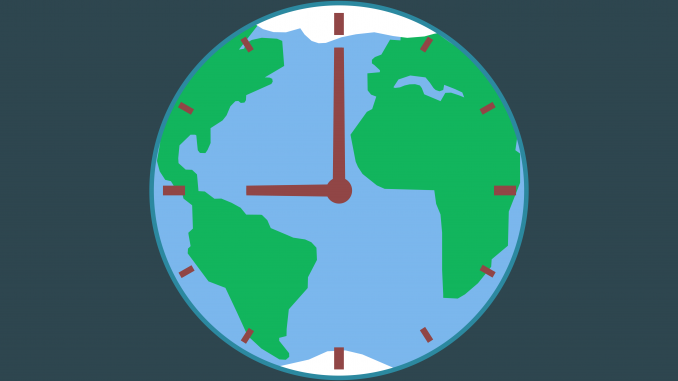
As the COVID-19 pandemic continues to wreak havoc on the United States, and we remain optimistic for the pandemic to end, we are ignoring another global crisis that will not stop with the distribution of a vaccine: climate change.
Climate change refers to the long-term regional or global average of temperature, humidity and rainfall patterns, primarily driven by human activity, NASA reported.
Carbon emissions were down 17 percent in April compared to last year, as less people were driving cars or utilizing other forms of pollutant transportation, but they increased over the following months, National Geographic reported.
Former Vice President Joe Biden announced a plan for a clean energy revolution and environmental justice, which aims for the U.S. to have a 100 percent clean energy economy and reach net-zero emissions no later than 2050.
Locally, Temple University also has a Climate Action Plan with the goal of being carbon neutral by 2050.
Rebecca Collins, director of sustainability at the Office of Sustainability, said the office has been measuring emissions since 2006, and they are currently considering what the most financially and operationally feasible solution is amid the COVID-19 pandemic.
“The majority of emissions are from our buildings,” Collins added. “The other big source is transportation, and a lot of that is generated from commuting to and from campus. Students, faculty and staff have a lot of control over that when we think of Temple’s total impact.”
Experts predicted carbon emissions would rebound once lockdowns were eased, and they fear the pandemic will exacerbate them, surpassing pre-pandemic rates, National Geographic reported.
Not driving a car is one of the best ways the Temple community can reduce emissions, Atsuhiro Muto, an environmental science assistant professor, said.
“When people drive and fly less, the emissions can be cut to some extent,” Muto said. “I don’t drive. I take public transit. I’m honestly bothered by how many people drive, when most do not need to drive.”
Climate change will be an ongoing threat to humanity for decades after COVID-19 is under control. But we must understand the relationship between the environment and pandemics in order to prevent the next one.
Climate change throws the environment out of balance and consequently creates a breeding ground for disease to spread, UN Environment reported.
Although the pandemic has caused a decline in carbon emissions, climate change will only worsen if people do not commit to making larger changes, Muto said.
“We can’t just keep emitting greenhouse gases like we are,” Muto added. “We can’t see it as if ‘we have this much time until we can do something.’ We need to act now.”
By the end of July, most economies were emitting their usual levels of carbon dioxide, and even if we had historically low carbon dioxide levels from July through October, it would hardly affect the carbon dioxide concentration in the atmosphere, Science Daily reported.
The more we procrastinate environmental policy changes, the less hope we have of saving our planet from a global catastrophe, said Sujith Ravi, an environmental science professor.
“We are not on the right track to easing the emissions, and it’s harder to beat the more we delay it,” Ravi said.
Globally, the only viable solution to climate change is a complete overhaul of the commerce sector. Temple faculty and students can take small steps, like driving less, measuring carbon emissions and having more eco-friendly on-campus buildings, but knowledge and execution are two different things.
“It’s not like one action, we have to take multiple actions on multiple levels,” Ravi said. “It is better to do something than nothing at all. The debate isn’t about what actions we need to take, the debate should move to when will we start doing it, which is now.”


Be the first to comment